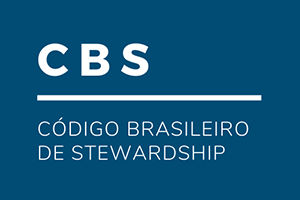About Stewardship
The capital markets are a crucial source of financing of any country’s sustainable development. Thus, institutional investors – whether fund managers or pension funds – should play a central role in defending the sustainability of the financial market.
The engagement between shareholders and investee companies is still not a common practice in Brazil. There are several explanations for this cultural gap, but perhaps the main one is related to the stage of development of the Brazilian capital market. Amid this context of engagement, stewardship translates into the view that the relationship between companies and institutional investors must be guided by governance practices and principles that reflect business sustainability and the responsibility of shareholders.
By launching this Brazilian Code, AMEC and the CFA Society Brazil aim to develop and disseminate the Stewardship culture in Brazil, promoting a sense of ownership in institutional investors and creating standards for responsible engagement. The group understands that the development of stewardship activities by institutional investors will promote the adoption of good corporate governance practices and will create value for companies, as more active investors will lead companies to have better structured processes for managing their businesses and mitigating its various risks.
The Brazilian Code privileges essence over form and is therefore based on principles: a compass, not a prescription. The efficiency of prescriptive codes has been questioned as they seem to have created the “box ticking mentality,” what makes the adherence to them superficial, with few results in practical terms. The intention is to initiate a process of changing the culture of management and ownership of securities over time.
Stewardship Seal

